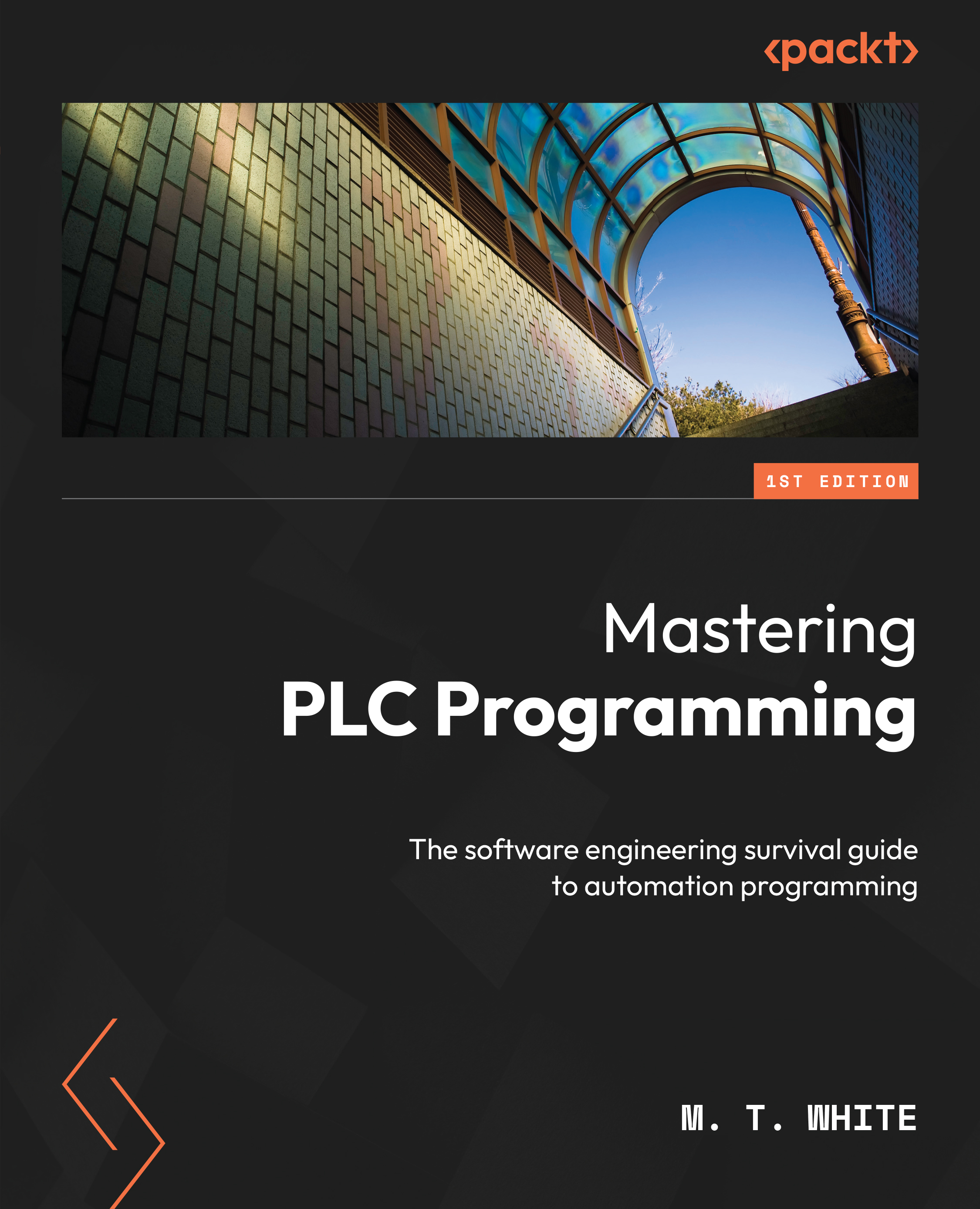Overview of this book
Object-oriented programming (OOP) is a new feature of PLC programming that has taken the automation world by storm. This book provides you with the necessary skills to succeed in the modern automation programming environment.
The book is designed in a way to take you through advanced topics such as OOP design, SOLID programming, the software development lifecycle (SDLC), library design, HMI development, general software engineering practices, and more. To hone your programming skills, each chapter has a simulated real-world project that’ll enable you to apply the skills you’ve learned. In all, this book not only covers complex PLC programming topics, but it also removes the financial barrier that comes with most books as all examples utilize free software. This means that to follow along, you DO NOT need to purchase any PLC hardware or software.
By the end of this PLC book, you will have what it takes to create long-lasting codebases for any modern automation project.



 Free Chapter
Free Chapter
